#mysticalchristianity
Explore tagged Tumblr posts
Text
My Extemporaneous Homily for Christmas Eve
[This extemporaneous homily given today on the Eve of Holy Nativity at The Chapel of St. George is transcribed from an audio recording.]
I often quote St. Eckhart of Hochheim, but I don’t usually read to you directly from his works, so I want to share with you today some excerpts from a couple of his Christmas Eve sermons:
‘Here, in time, we are celebrating the eternal birth which God the Father bore and bears unceasingly in eternity, because this same birth is now born in time, in human nature….What does it avail me that this birth is always happening, if it does not happen in me? That it should happen in me is what matters. We shall therefore speak of this birth, of how it may take place in us and be consummated in the virtuous soul, whenever God the Father speaks his eternal Word in the perfect soul….Now observe, as regards this birth, where it takes place: “Where is he who is born?” Now I say, as I have often said before, that this eternal birth occurs in the soul precisely as it does in eternity, no more and no less, for it is one birth, and this birth occurs in the essence and ground of the soul….If anyone were to ask me, “Why do we pray, why do we fast, why do we do all our works, why are we baptized, why (most important of all) did God become man?”—I would answer: In order that God may be born in the soul and the soul be born in God. For that reason all the scriptures were written, for that reason God created the world and all angelic natures: so that God may be born in the soul and the soul be born in God….St. Paul says, “In the fullness of time God sent his Son” (Gal. 4:4). St. Augustine says what this fullness of time is: “Where there is no more time, that is the ‘fullness of time’.” The day is full when there is no more day. That is a necessary truth: all time must be gone when this birth begins, for there is nothing that hinders this birth so much as time and creatures. It is an assured truth that time cannot affect God or the soul by her nature. If the soul could be touched by time, she would not be the soul, and if God could be touched by time, he would not be God. But if it were possible for the soul to be touched by time, then God could never be born in her, and she could never be born in God. For God to be born in the soul, all time must have dropped away from her, or she must have dropped away from time, with will or desire….This, then, is the fullness of time: when the Son of God is born in us.’
So we might ask, along with St. Eckhart, why this birth has taken place—this birth that is invited to continually occur in us. And I think we can answer that very, very simply; St. Athanasius did it very well in the fourth century: he said, ‘God became a human being in order that the human being might become God’—or, translated slightly differently, ‘God become human in order that the human being might be raised up a god.’
As the psalmist says: ‘You are gods.’ Not your personalities; not the egoic self that’s coming and going, that’s fleeting like a transparent image on a screen, but the Divine Ground that Eckhart talks about.
That God has such an infinite love for God’s own creation, which was never separate from God, is the great Mystery behind the Incarnation, behind the Nativity that we celebrate today. Out of that profound, ineffable, immeasurable energy of love, the Light of all Lights comes into the world.
And then we are asked to participate in that coming—not only one time, but again and again and again.
That, I think, is really the Mystery and the meaning of Nativity, in the deepest sense. And at the end of the day, when all of these moving shadows and lights pass away—all of our gestures, all of the symbols that we honor and uphold, all of the songs that we sing, all of the rituals that we enact, all of the relationships that we engage in—when all of these things pass away, the fundamental, essential meaning has to be this birth in us. And I think there is no other meaning, ultimately.
For these words and all that has been offered here this morning, Amen.
#brendanelliswilliams#spirituality#mysticism#priest#wisdom#contemplative#christmas#nativity#anglican#mysticalchristianity#perennialphilosophy#nonduality#fatherbrendan#eckhart#meistereckhart#depth#ancient#tradition#reflection#homily#spiritualgrowth#awakening#reclamation
0 notes
Text
.
.
.
Burning on the Road
.
.
.
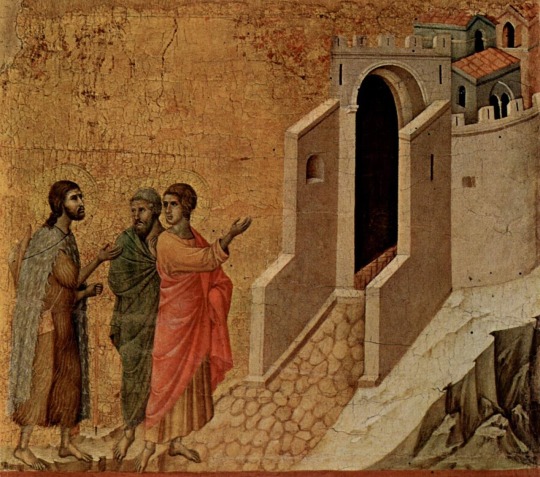
Jesus and the two disciples On the Road to Emmaus, by Duccio 14th century
.
.
.
“Then Yahweh replied, “This is what I, Yahweh, the God of Israel, say to you: ‘The good figs are the people of Judah whom I sent away in exile to Babylon.
My eyes will compassionately watch over them for their good, to bring them back to this land, to build them up and not to tear them down, to plant them and not to uproot them.
I will give them a willing heart to know that I am Yahweh.
They will be my beloved people, and I will be their loving God, for they will return to me with every passion of their heart.”
Jeremiah 24:4-7 TPT
.
.
.
“A white-tailed deer drinks from the creek; I want to drink God, deep drafts of God. I’m thirsty for God-alive.
I wonder, “Will I ever make it— arrive and drink in God’s presence?” I’m on a diet of tears— tears for breakfast, tears for supper.
All day long people knock at my door, Pestering, “Where is this God of yours?”
These are the things I go over and over, emptying out the pockets of my life.
I was always at the head of the worshiping crowd, right out in front, Leading them all, eager to arrive and worship, Shouting praises, singing thanksgiving— celebrating, all of us, God’s feast!
Why are you down in the dumps, dear soul?
Why are you crying the blues?
Fix my eyes on God— soon I’ll be praising again. He puts a smile on my face.
He’s my God. When my soul is in the dumps, I rehearse everything I know of you, From Jordan depths to Hermon heights, including Mount Mizar. Chaos calls to chaos, to the tune of whitewater rapids.
Your breaking surf, your thundering breakers crash and crush me. Then God promises to love me all day, sing songs all through the night!
My life is God’s prayer. Sometimes I ask God, my rock-solid God, “Why did you let me down? Why am I walking around in tears, harassed by enemies?”
They’re out for the kill, these tormentors with their obscenities, Taunting day after day,
“Where is this God of yours?” Why are you down in the dumps, dear soul? Why are you crying the blues?
Fix my eyes on God— soon I’ll be praising again. He puts a smile on my face. He’s my God.”
Psalms 42:1-11 MSG
.
.
.

The Last Supper - Leonardo Da Vinci
.
.
.
This is how it happened, As soon as they reclined at the table, he took the bread, blessed it, broke it and 1was giving it to them!
([1] And proceeded to give it... [ἐπεδίδου] A very beautiful use of the Imperfect Active, indicating that while he was in the act of distributing they recognized him.
He blessed, and having broken, was giving it to them, when, in an instant, their eyes were opened.
And immediately their eyes 1were opened and they 2knew exactly who he was! Then he 3vanished from their view!
They erupted in an avalanche of words, Were our hearts not set ablaze - even while he was speaking along the way and opening the Scriptures to us!
Luke 24:30-32 Mirror study Bible
.
.
.
“ So here I am; found in Christ. I was looking in the wrong place all along. My own duty-and-guilt-driven religious endeavor snared me in the cul-de-sac maze of self-righteousness, sponsored by the law of works.
The faith of Christ reveals my identity; righteousness defines who God believes that I really am. This righteousness is sourced in God and endorses the authority of faith. (Faith is a fairy tale if Jesus is not the substance of it.). Oh to comprehend the dynamic of his resurrection. His resurrection is evidence of our righteousness.
In the revelation of God’s economy of inclusion, I actually co-suffered with him and co-died together with Christ. (Because I was already fully represented in his sufferings, his death and resurrection, I am greatly inspired when faced with contradictions now. Romans 4:25.)”
Philippians 3:9-10 Mirror Study Bible
.
.
.
Knowledge begins in hunger.
Not the kind that can be solved by facts,
but the kind that kindles fire in the heart.
Christ draws near to the longing soul,
opens the Word, breaks the Bread,
and suddenly, we see Him.
Not just known — desired.
Not just studied — embraced.
.
.
.
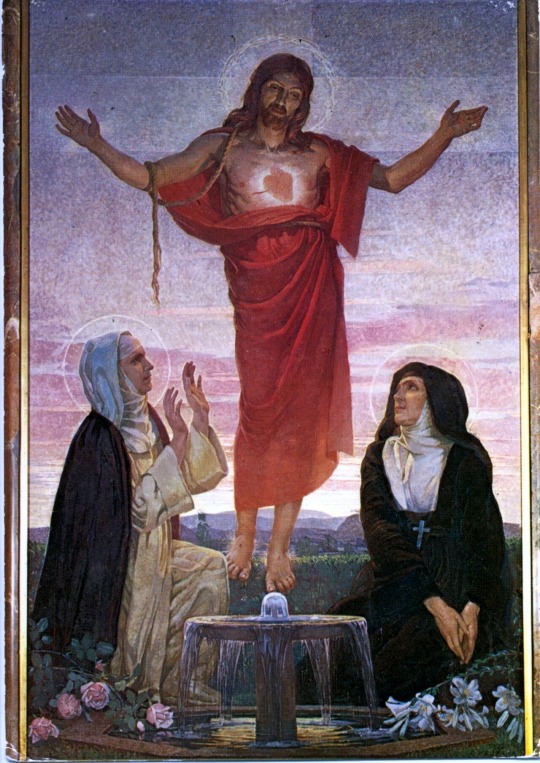
Corrado Mezzana, 1922
.
.
.
What stirs my heart like the disciples’ on the road to Emmaus?
.
.
.
How is Christ awakening my holy desire during this Easter season?
.
.
.
Jesus, Living Word and Flame of holy longing,
Kindle our hearts with the fire of Your passion.
Let us hunger for You more than understanding,
And find ourselves known in the breaking of the bread.
0 notes
Text
youtube
A few Shocking, Controversial, and Unusual Bible Vereses from the Gospel of Thomas. Number 114 is Mind numbing.....The Gospel of Thomas is a collection of 114 sayings attributed to Jesus, discovered in the mid-20th century near Nag Hammadi, Egypt. Unlike the canonical Gospels, it is not a narrative but a compilation of Jesus' teachings, emphasizing direct spiritual knowledge and the inner kingdom of God. Some scholars view it as an early Christian text that reflects a Gnostic perspective, focusing on personal enlightenment rather than orthodox doctrines. The sayings often encourage introspection and reveal a mystical understanding of Jesus' message.
#GospelOfThomas #JesusTeachings #GnosticGospels #SpiritualWisdom #MysticalChristianity #NagHammadi #AncientTexts #ChristianMysticism #HiddenGospels #InnerKingdom #EsotericChristianity #GnosticWisdom #LostGospels #EarlyChristianity #SpiritualEnlightenment #SacredTexts #ApocryphalGospels #JesusSayings #SpiritualJourney #InnerTruths
#BibleVerses #GospelWisdom #ScripturalInsights #BiblicalTeachings #SpiritualVerses #SacredScripture #HolySayings #DivineTeachings #AncientWisdom #BiblicalTruths #ScriptureStudy #JesusWords #BibleReflections #BibleVerseOfTheDay #HolyScriptures #spiritualawakening #religiousbeliefs #religiousviews #understandinggod #understandingtheuniverse #jesusteachings
#bible scripture#bible verse#youtube#bible study#bible#religious trauma#aliens and ufos#bible quote#religion#aliens#shocking news#gods#gospel#scripture
1 note
·
View note
Text
Appearance of the Hply Cross Over Jerusalem
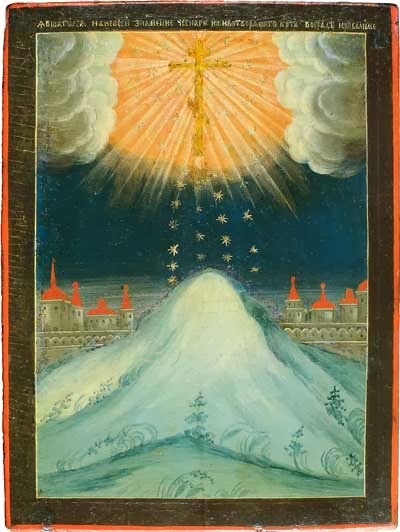
The Precious Cross appeared in the sky over Jerusalem on the morning of May 7, 351 during the reign of the emperor Constantius, the son of Saint Constantine (May 21).
At that time the heresy of Arianism, which taught that Christ was merely a creature and not God, was causing great turmoil and division throughout the Empire. Even after the First Ecumenical Council at Nicea in 325, many people were drawn to this false teaching, and the Orthodox found themselves in the minority in many places.
Constantius, the ruler of the eastern part of the Empire, was a fervent supporter of Arianism. His brothers Constantine II and Constans, who were pious Orthodox Christians, ruled in the west. They were both killed in separate battles around 350, leaving Constantius as sole ruler. Also in 350, Saint Cyril (March 18) became Patriarch of Jerusalem and began his zealous struggle against Arianism.
In May of 351 a luminous Cross appeared over Jerusalem, stretching from Golgotha to the Mount of Olives, a distance of about five and a half miles. The Cross was wide as it was long, and shone more brightly than the sun. Many people left their homes and workplaces to gather in the church and glorify Christ. The historian Sozomen says that this wondrous sign led to the conversion of multitudes of pagans and Jews to Christianity.
A letter from Saint Cyril to the emperor describing this phenomenon, and admonishing him to become Orthodox, has been preserved. The apparition of the Cross remained over the city for a whole week.
The vision of the Cross over Jerusalem strengthened the Orthodox faithful and contributed to the return of many Arians to the Church. It is also a reminder of the awesome Second Coming of Christ, when “the sign of the Son of man shall appear in heaven” (Matthew 24:30).
28 notes
·
View notes
Text
There is a source within us that always works to bring things into the light.
John A. Sanford

#johnasanford#psychology#psychoanalytics#psychoanalysis#psychoanalyst#christianity#mysticalchristianity#jungian#dreams#healing#love#jesus#wholeness#sin
0 notes
Photo

Margaret Fell, "The Mother of Quakerism", was ahead of her time. She believed that one could have a "religious experience" anywhere at any time. She gelt that service was the great uniter and theology was the great divider. She saw all people as equal. In 1664 Margaret Fell was arrested for failing to take an oath to The King of England and for allowing Quaker Meetings to be held in her home. She defended herself by saying that "as long as the Lord blessed her with a home, she would worship him in it". She spent six months in Lancaster Gaol, whereafter she was sentenced to life imprisonment and forfeiture of her property. She remained in prison until 1668, during which time she wrote religious pamphlets and epistles. Perhaps her most famous work is "Women's Speaking Justified", a scripture-based argument for women's ministry, and one of the major texts on women's religious leadership in the 17th century. #ancestry #myblood #mypeeps #equality #strongwomen #independence #freedom #selfreliance #quakerism #mysticalchristianity #experientialreligion #fuckyourking #fuckyourmonarchy #egalitarianism #internationalwomensday #womensday2018 (at Swarthmoor Hall)
#internationalwomensday#selfreliance#myblood#strongwomen#experientialreligion#egalitarianism#womensday2018#fuckyourmonarchy#mypeeps#mysticalchristianity#equality#freedom#ancestry#quakerism#independence#fuckyourking
0 notes
Text
Women In Christ
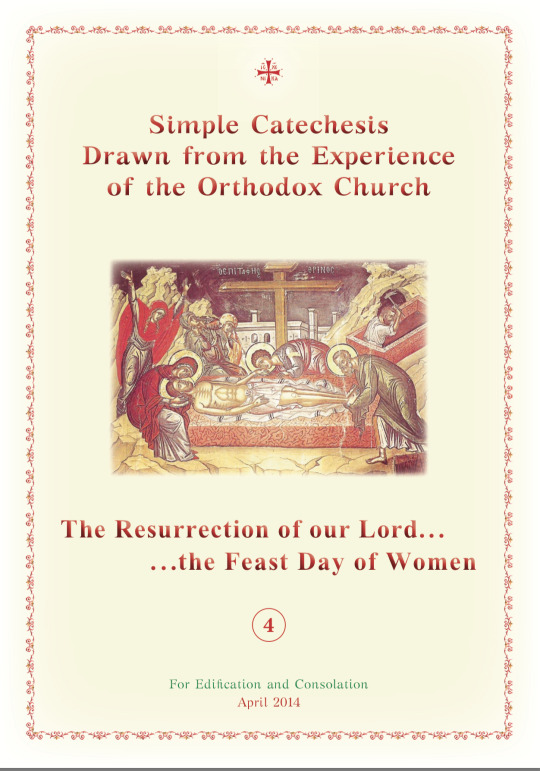
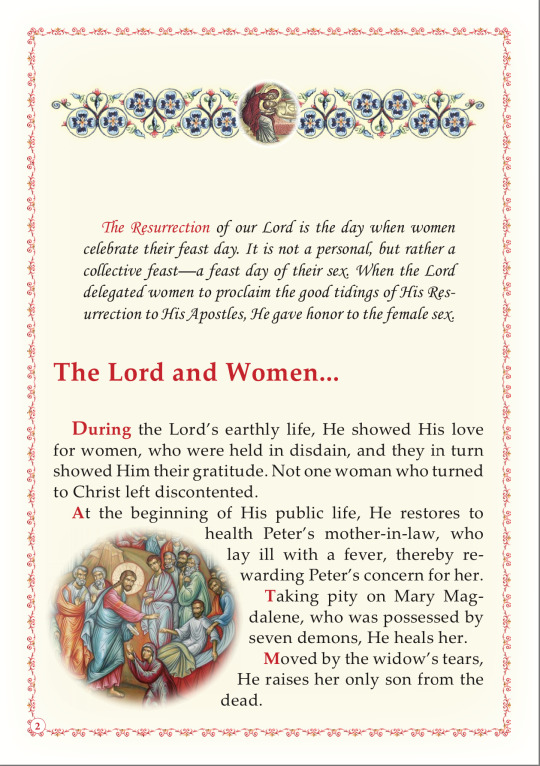
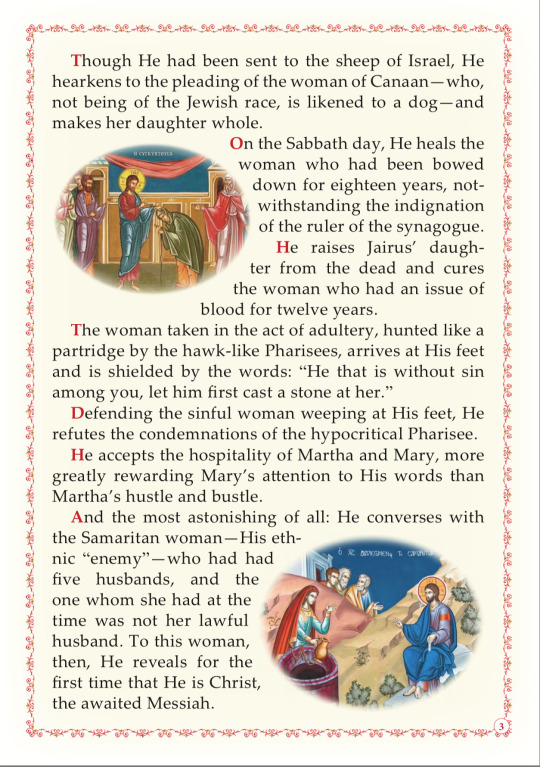



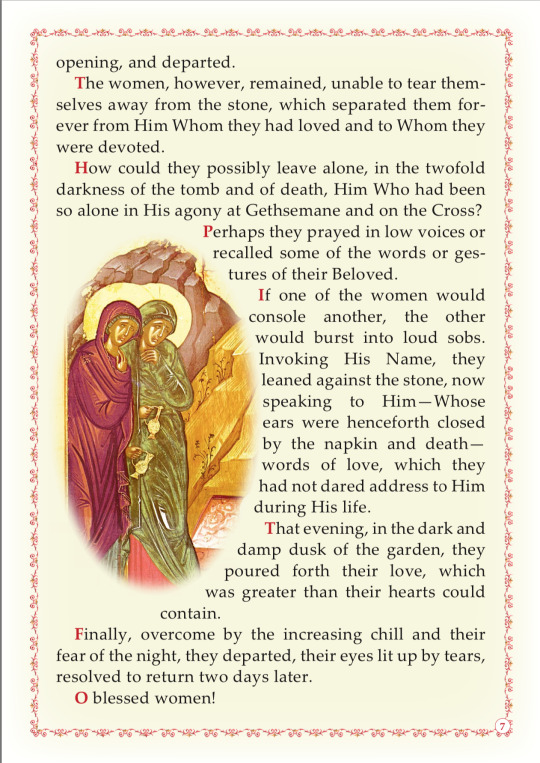

46 notes
·
View notes
Video
youtube
The Troparion of Pentecost (English, Greek, and Arabic)
#pentecost#orthodoxy#orthodoxchristianity#sacredmusic#sacredchants#firstchristian#ancientfaith#feast#mysticalchristianity
12 notes
·
View notes
Text
Kurtz-Icon of the Mother of God
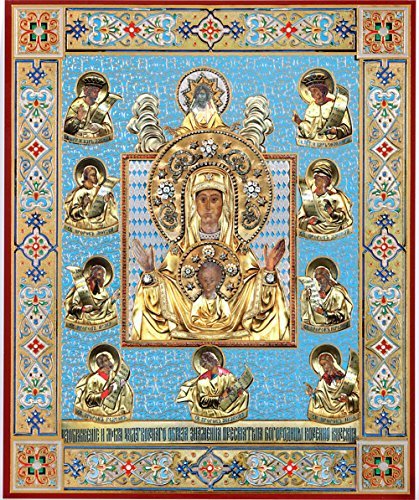
In the 13th century, during the dreadful period of the Tartar invasion of Russia, the devastated province of Kursk was emptied of people and its principal city, Kursk, became a wilderness. Now, the residents of the city of Rylsk, which had been preserved from invasion, often journeyed to the site of Kursk to hunt wild beasts. One of the hunters, going along the bank of the river Skal, which-was not very far from ruined Kursk, noticed an icon lying face down on the ground next to the root of a tree. The hunter picked it up and found that it was an icon of the Sign, such as was enshrined and venerated in the city of Novgorod. At this time, the icon's first miracle was worked, for no sooner had the hunter picked up the sacred image than there immediately gushed forth with great force an abundant spring of pure water. This took place on September 8th in the year 1295. The hunter constructed a small wooden chapel and placed the newly manifested image of the Mother of God therein. The residents of Rylsk began to visit the place of the manifestation of this holy object and the icon was glorified by miracles all the more. Prince Vasily Shemyaka of Rylsk ordered that the icon be brought to the city of Rylsk itself and this was done in a solemn manner, for the people of the city went forth to met the icon of the Mother of God; but Shemyaka himself declined to attend the festivities and for this reason was punished with blindness. The prince, however, repented and straightway received healing. Moved by this miracle, Shemyaka constructed a church in the city of Rylsk in honor of the Nativity of the All-Holy Theotokos, and there the miraculous icon was enshrined on September 8th, the day of its manifestation, appointed as the annual feast date...keep reading, Source Kursk-icon.com
18 notes
·
View notes
Text
Saints&Reading: Wed., May 21, 2020
Equals to the Apostles, Empereur St Constantin and his Mother Saint Helen

The Church calls Saint Constantine (306-337) “the Equal of the Apostles,” and historians call him “the Great.” He was the son of the Caesar Constantius Chlorus (305-306), who governed the lands of Gaul and Britain. His mother was Saint Helen, a Christian of humble birth.
At this time the immense Roman Empire was divided into Western and Eastern halves, governed by two independent emperors and their corulers called “Caesars.” Constantius Chlorus was Caesar in the Western Roman Empire. Saint Constantine was born in 274, possibly at Nish in Serbia. In 294, Constantius divorced Helen in order to further his political ambition by marrying a woman of noble rank. After he became emperor, Constantine showed his mother great honor and respect, granting her the imperial title “Augusta.”
Constantine, the future ruler of all the whole Roman Empire, was raised to respect Christianity. His father did not persecute Christians in the lands he governed. This was at a time when Christians were persecuted throughout the Roman Empire by the emperors Diocletian (284-305) and his corulers Maximian Galerius (305-311) in the East, and the emperor Maximian Hercules (284-305) in the West.
After the death of Constantius Chlorus in 306, Constantine was acclaimed by the army at York as emperor of Gaul and Britain. The first act of the new emperor was to grant the freedom to practice Christianity in the lands subject to him. The pagan Maximian Galerius in the East and the fierce tyrant Maxentius in the West hated Constantine and they plotted to overthrow and kill him, but Constantine bested them in a series of battles, defeating his opponents with the help of God. He prayed to God to give him a sign which would inspire his army to fight valiantly, and the Lord showed him a radiant Sign of the Cross in the heavens with the inscription “In this Sign, conquer.”
After Constantine became the sole ruler of the Western Roman Empire, he issued the Edict of Milan in 313 which guaranteed religious tolerance for Christians. Saint Helen, who was a Christian, may have influenced him in this decision. In 323, when he became the sole ruler of the entire Roman Empire, he extended the provisions of the Edict of Milan to the Eastern half of the Empire. After three hundred years of persecution, Christians could finally practice their faith without fear...keep reading OCA
Acts 14:20-27 NKJV
20 However, when the disciples gathered around him, he rose up and went into the city. And the next day he departed with Barnabas to Derbe.
Strengthening the Converts
21 And when they had preached the gospel to that city and made many disciples, they returned to Lystra, Iconium, and Antioch, 22 strengthening the souls of the disciples, exhorting them to continue in the faith, and saying, “We must through many tribulations enter the kingdom of God.” 23 So when they had appointed elders in every church, and prayed with fasting, they commended them to the Lord in whom they had believed. 24 And after they had passed through Pisidia, they came to Pamphylia. 25 Now when they had preached the word in Perga, they went down to Attalia. 26 From there they sailed to Antioch, where they had been commended to the grace of God for the work which they had completed.
27 Now when they had come and gathered the church together, they reported all that God had done with them, and that He had opened the door of faith to the Gentiles.
John 9:39-10:9 NKJV
39 And Jesus said, “For judgment I have come into this world, that those who do not see may see, and that those who see may be made blind.”
40 Then some of the Pharisees who were with Him heard these words, and said to Him, “Are we blind also?”
41 Jesus said to them, “If you were blind, you would have no sin; but now you say, ‘We see.’ Therefore your sin remains.
Jesus the True Shepherd
10 “Most assuredly, I say to you, he who does not enter the sheepfold by the door, but climbs up some other way, the same is a thief and a robber. 2 But he who enters by the door is the shepherd of the sheep. 3 To him the doorkeeper opens, and the sheep hear his voice; and he calls his own sheep by name and leads them out. 4 And when he brings out his own sheep, he goes before them; and the sheep follow him, for they know his voice. 5 Yet they will by no means follow a stranger, but will flee from him, for they do not know the voice of strangers.”6 Jesus used this illustration, but they did not understand the things which He spoke to them.
Jesus the Good Shepherd
7 Then Jesus said to them again, “Most assuredly, I say to you, I am the door of the sheep.8 All who ever came [a]before Me are thieves and robbers, but the sheep did not hear them. 9 I am the door. If anyone enters by Me, he will be saved, and will go in and out and find pasture.
Footnotes:
John 10:8 M omits before Me
New King James Version (NKJV) Scripture taken from the New King James Version®. Copyright © 1982 by Thomas Nelson. All rights reserved.
Source Biblegateway
#orthodoxy#orthodoxchristian#firstchristian#ancient christianity#spirituality#gospel#bible#mysticalchristianity
6 notes
·
View notes
Video
youtube
The Angel Cried (Orthodox Virtual Quarantine Choir)
8 notes
·
View notes
Text
Saints&Reading: Wed., May 6, 2020
Righteous Job, the Longsuffering

The righteous Job (whose name means “persecuted”), God’s faithful servant, was the perfect image of every virtue. The son of Zarah and Bossorha (Job 42), Job was a fifth-generation descendent of Abraham. He was a truthful, righteous, patient and pious man who abstained from every evil thing. Job was very rich and blessed by God in all things, as was no other son of Ausis (his country, which lay between Idoumea and Arabia). However, divine condescension permitted him to be tested.
Job lost his children, his wealth, his glory, and every consolation all at once. His entire body became a terrible wound covered with boils. Yet he remained steadfast and patient in the face of his misfortune for seven years, always giving thanks to God.
Later, God restored his former prosperity, and he had twice as much as before. Job lived for 170 years after his misfortune, completing his earthly life in 1350 B.C. at the age of 240. Some authorities say that Job’s afflictions lasted only one year, and that afterwards he lived for 140 years, reaching the age of 210.
Job’s explanations are among the most poetic writings in the Old Testament book which bears his name. It is one of the most edifying portions of Holy Scripture. Job teaches us that we must endure life’s adversities patiently and with trust in God. As Saint Anthony the Great (January 17) says, without temptations, it is impossible for the faithful to be saved.
The Orthodox Church reads the book of Job, the first of the seven wisdom books of the Old Testament, during Holy Week, drawing a parallel between Job and Christ as righteous men who suffered through no fault of their own. God allowed Satan to afflict Job so that his faithfulness would be proven. Christ, the only sinless one, suffered voluntarily for our sins. The Septuagint text of Job 42:17 says that Job “will rise again with those whom the Lord raises up.” This passage is read on Great and Holy Friday, when the composite Gospel at Vespers speaks of the tombs being opened at the moment the Savior died on the Cross, and the bodies of the saints were raised, and they appeared to many after Christ’s Resurrection (Mt.27:52)
Source Orthodox Church of America
Acts 8:18-25 NKJV
18 And when Simon saw that through the laying on of the apostles’ hands the Holy Spirit was given, he offered them money, 19 saying, “Give me this power also, that anyone on whom I lay hands may receive the Holy Spirit.”
20 But Peter said to him, “Your money perish with you, because you thought that the gift of God could be purchased with money! 21 You have neither part nor portion in this matter, for your heart is not right in the sight of God. 22 Repent therefore of this your wickedness, and pray God if perhaps the thought of your heart may be forgiven you. 23 For I see that you are poisoned by bitterness and bound by iniquity.”
24 Then Simon answered and said, “Pray to the Lord for me, that none of the things which you have spoken may come upon me.”
25 So when they had testified and preached the word of the Lord, they returned to Jerusalem, preaching the gospel in many villages of the Samaritans.
John 6:35-39 NKJV
35 And Jesus said to them, “I am the bread of life. He who comes to Me shall never hunger, and he who believes in Me shall never thirst. 36 But I said to you that you have seen Me and yet do not believe. 37 All that the Father gives Me will come to Me, and the one who comes to Me I will [a]by no means cast out. 38 For I have come down from heaven, not to do My own will, but the will of Him who sent Me.39 This is the will of the Father who sent Me, that of all He has given Me I should lose nothing, but should raise it up at the last day.
Footnotes:
John 6:37 certainly not New King James Version(NKJV) Scripture taken from the New King James Version®. Copyright © 1982 by Thomas Nelson. All rights reserved. Source Biblegateway
6 notes
·
View notes
Text
St Aleksy the Man ofGod
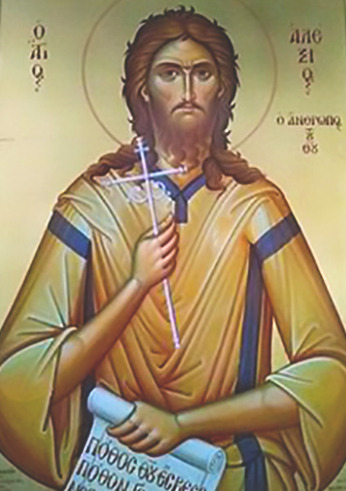
Saint Alexis was born at Rome into the family of the pious and poverty-loving Euphemianus and Aglais. The couple was childless for a long time and constantly prayed the Lord to grant them a child. And the Lord consoled the couple with the birth of their son Alexis.
At six years of age the child began to read and successfully studied the mundane sciences, but it was with particular diligence that he read Holy Scripture. When he was a young man, he began to imitate his parents: he fasted strictly, distributed alms and beneath his fine clothing he secretly wore a hair shirt. Early on there burned within him the desire to leave the world and serve God. His parents, however, had arranged for Alexis to marry a beautiful and virtuous bride.
On his wedding night, Alexis gave her his ring and his belt (which were very valuable) and said, “Keep these things, Beloved, and may the Lord be with us until His grace provides us with something better.” Secretly leaving his home, he boarded a ship sailing for Mesopotamia.
Arriving in the city of Edessa, where the Icon of the Lord “Not-made-by-Hands” (August 16) was preserved, Alexis sold everything that he had, distributed the money to the poor and began to live near the church of the Most Holy Theotokos under a portico. The saint used a portion of the alms he received to buy bread and water, and he distributed the rest to the aged and infirm. Each Sunday he received the Holy Mysteries.
The parents sought the missing Alexis everywhere, but without success. The servants sent by Euphemianus also arrived in Edessa, but they did not recognize the beggar sitting at the portico as their master. His body was withered by fasting, his comeliness vanished, his stature diminished. The saint recognized them and gave thanks to the Lord that he received alms from his own servants...keep reading source
St Patrick Bishop of Armagh
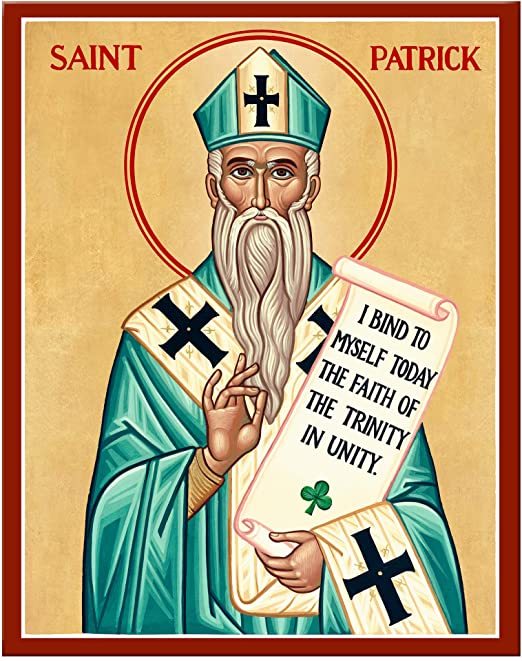
Enlightener of Ireland was born around 385, the son of
Calpurnius, a Roman decurion (an official responsible for collecting taxes). He lived in the village of Bannavem Taberniae, which may have been located at the mouth of the Severn River in Wales. The district was raided by pirates when Patrick was sixteen, and he was one of those taken captive. He was brought to Ireland and sold as a slave, and was put to work as a herder of swine on a mountain identified with Slemish in Co. Antrim. During his period of slavery, Patrick acquired a proficiency in the Irish language which was very useful to him in his later mission.
He prayed during his solitude on the mountain, and lived this way for six years. He had two visions. The first told him he would return to his home. The second told him his ship was ready. Setting off on foot, Patrick walked two hundred miles to the coast. There he succeeded in boarding a ship, and returned to his parents in Britain.
Some time later, he went to Gaul and studied for the priesthood at Auxerre under Saint Germanus (July 31). Eventually, he was consecrated as a bishop...keep reading OCOrthodox Church of America.
Genesis: 7:1-5 NKJV
The Great Flood
7 Then the Lord said to Noah, “Come into the ark, you and all your household, because I have seen that you are righteous before Me in this generation. 2 You shall take with you seven each of every clean animal, a male and his female; two each of animals that are unclean, a male and his female; 3 also seven each of birds of the air, male and female, to keep [a]the species alive on the face of all the earth. 4 For after seven more days I will cause it to rain on the earth forty days and forty nights, and I will [b]destroy from the face of the earth all living things that I have made.” 5 And Noah did according to all that the Lord commanded him.
Footnotes:
Genesis 7:3 Lit. seed
Genesis 7:4 Lit. blot ou
Proverbs: 8:32, 9:11 NKJV
8:32 “Now therefore, listen to me, my children, For blessed are those who keep my ways.
9:11 For by me your days will be multiplied, And years of life will be added to you.
New King James Version (NKJV) Scripture taken from the New King James Version®. Copyright © 1982 by Thomas Nelson.All rights reserved Source: Biblegateway.com
10 notes
·
View notes
Text
Saints&Reading: Sun., May 10, 2020
Apostle Simon the Zaelot

Saint Simon was from Cana in Galilee, and was known to the Lord and His Mother. Tradition says that he was the bridegroom at the wedding where the Savior performed His first miracle. After witnessing the miracle of the water which had been turned into wine, he became a zealous follower of Christ. For this reason, he is known as Saint Simon the Zealot.
Saint Simon was one of the twelve Apostles, and received the Holy Spirit with the others on Pentecost. He traveled to many places from Britain to the Black Sea, proclaiming the Gospel of Christ. After winning many pagans to the Lord, Saint Simon suffered martyrdom by crucifixion.
Saint Demetrius of Rostov says that this Saint Simon is to be distinguished from the Apostle Simon Peter, and from the Lord’s relative Simon (Mt.13:55), who was the second Bishop of Jerusalem.
Saint Simon is also commemorated on June 30 with the other Apostles.
Source Orthodox Church of America_OCA
Blessed Taïs (Talsia)

Saint Thais lived in Egypt in the fifth century. Left an orphan after the death of her wealthy parents, she led a pious life, distributing her wealth to the poor, and she gave shelter to pilgrims on her estate. She decided that she would never marry, but would devote her life to serving Christ.
After spending all her inheritance, Thais was tempted to acquire more money by any means, and began to lead a sinful life. The Elders of Sketis near Alexandria heard of her fall, and asked Saint John the Dwarf (November 9) to go to Thais and persuade her to repent. “She was kind to us,” they said, “now perhaps we can help her. You, Father, are wise. Go and try to save her soul, and we will pray that the Lord will help you.”
The Elder went to her home, but Thais’s servant did not want to allow him into the house. Saint John said, “Tell your mistress that I have brought her something very precious.” Thais, knowing that the monks sometimes found pearls at the shore, told her servant to admit the visitor. Saint John sat down and looked her in the face, and then began to weep. Thais asked him why he was crying. “How can I not weep,” he asked, “when you have forsaken your Bridegroom, the Lord Jesus Christ, and are pleasing Satan by your deeds?”
The Elder’s words pierced the soul of Thais like a fiery arrow, and at once she realized how sinful her present life had become. In fear, she asked him if God would accept the repentance of a sinner like her. Saint John replied that the Savior awaited her repentance. That is why He came, to seek and to save the perishing. “He will welcome you with love,” he said, “and the angels will rejoice over you. As the Savior said Himself, one repentant sinner causes the powers of Heaven to rejoice” (Luke 15:7)...keep reading OCA
Acts 9: 32-42 NKJV
Aeneas Healed
32 Now it came to pass, as Peter went through all parts of the country, that he also came down to the saints who dwelt in Lydda. 33 There he found a certain man named Aeneas, who had been bedridden eight years and was paralyzed. 34 And Peter said to him, “Aeneas, Jesus the Christ heals you. Arise and make your bed.” Then he arose immediately. 35 So all who dwelt at Lydda and Sharon saw him and turned to the Lord.
Dorcas Restored to Life
36 At Joppa there was a certain disciple named [a]Tabitha, which is translated [b]Dorcas. This woman was full of good works and charitable deeds which she did. 37 But it happened in those days that she became sick and died. When they had washed her, they laid her in an upper room. 38 And since Lydda was near Joppa, and the disciples had heard that Peter was there, they sent two men to him, imploring him not to delay in coming to them. 39 Then Peter arose and went with them. When he had come, they brought him to the upper room. And all the widows stood by him weeping, showing the tunics and garments which Dorcas had made while she was with them. 40 But Peter put them all out, and knelt down and prayed. And turning to the body he said, “Tabitha, arise.” And she opened her eyes, and when she saw Peter she sat up. 41 Then he gave her his hand and lifted her up; and when he had called the saints and widows, he presented her alive. 42 And it became known throughout all Joppa, and many believed on the Lord.
Footnotes:
Acts 9:36 Lit., in Aram., Gazelle
Acts 9:36 Lit., in Gr., Gazelle
John 5:1-15 NKJV
5 After this there was a feast of the Jews, and Jesus went up to Jerusalem. 2 Now there is in Jerusalem by the Sheep Gate a pool, which is called in Hebrew, [a]Bethesda, having five porches. 3 In these lay a great multitude of sick people, blind, lame, [b]paralyzed, [c]waiting for the moving of the water. 4 For an angel went down at a certain time into the pool and stirred up the water; then whoever stepped in first, after the stirring of the water, was made well of whatever disease he had. 5 Now a certain man was there who had an infirmity thirty-eight years. 6 When Jesus saw him lying there, and knew that he already had been in that condition a long time, He said to him, “Do you want to be made well?”
7 The sick man answered Him, “Sir, I have no man to put me into the pool when the water is stirred up; but while I am coming, another steps down before me.”
8 Jesus said to him, “Rise, take up your bed and walk.” 9 And immediately the man was made well, took up his bed, and walked.
And that day was the Sabbath. 10 The Jews therefore said to him who was cured, “It is the Sabbath; it is not lawful for you to carry your bed.”
11 He answered them, “He who made me well said to me, ‘Take up your bed and walk.’ ”
12 Then they asked him, “Who is the Man who said to you, ‘Take up your bed and walk’?” 13 But the one who was healed did not know who it was, for Jesus had withdrawn, a multitude being in that place. 14 Afterward Jesus found him in the temple, and said to him, “See, you have been made well. Sin no more, lest a worse thing come upon you.”
15 The man departed and told the Jews that it was Jesus who had made him well.
Footnotes:
John 5:2 NU Bethzatha
John 5:3 withered
John 5:3 NU omits the rest of v. 3 and all of v. 4.
New King James Version (NKJV) Scripture taken from the New King James Version®. Copyright © 1982 by Thomas Nelson. All rights reserved.
Source Biblegateway
5 notes
·
View notes
Text
CHRIST IS RISEN! TRULY HE IS RISEN!
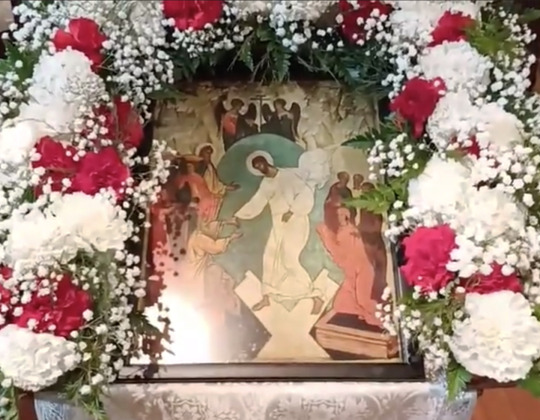
Christ is risen from the dead,
Trampling down death by death,
And upon those in the tombs
Bestowing life!
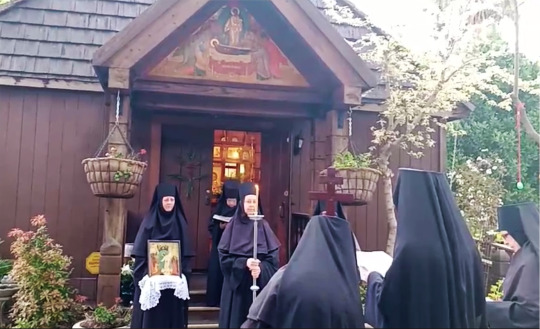
Le Christ est ressuscité des morts;
par la mort, il a vaincu la mort;
à ceux qui sont dans les tombeaux
il a donné la vie!

Christós anésti ek nekrón,
thanáto thánaton patísas,
ké tís en tís mnímasi,
zoín charisámenos!
youtube
Khristos voskrese iz mertvykh,
Smertiyu smert poprav,
E sushchim vo grobekh
Zhivot darovar
6 notes
·
View notes
Text
Saints&Reading: Fri., June 26, 2020
Martyr Aquilina of Byblos in Lebanon (293)
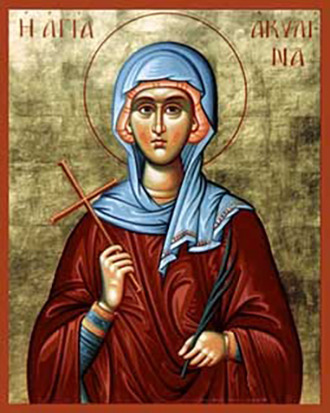
The Holy Martyr Aquilina, a native of the Phoenician city of Byblos, suffered under the emperor Diocletian (284-305). Her parents raised her in Christian piety. When the girl was only twelve years old, she persuaded a pagan friend to convert to Christ. One of the servants of the imperial governor Volusian accused her of teaching others not to follow the religion of their fathers. The girl firmly confessed her faith in Christ before the governor and said that she would not renounce Him. Volusian tried to influence the young confessor through persuasion and by flattery, but seeing her confidence, he ordered her to be tortured.
They struck her upon the face, then they stripped her and beat her with whips. The torturer asked, “Where then is your God? Let Him come and take you out of my hands”.
The saint answered, “The Lord is here with me invisibly, and the more I suffer, the more strength and endurance will He give me.”
They drilled through the martyr’s ears with heated metal rods. The holy virgin fell down as if dead. The torturer thought that the girl had actually died, and he gave orders to throw her body outside the city to be eaten by dogs...keep reading OCA
Saint Triphilius bishop of Leucocia, Nicosia, Cyprus (370)
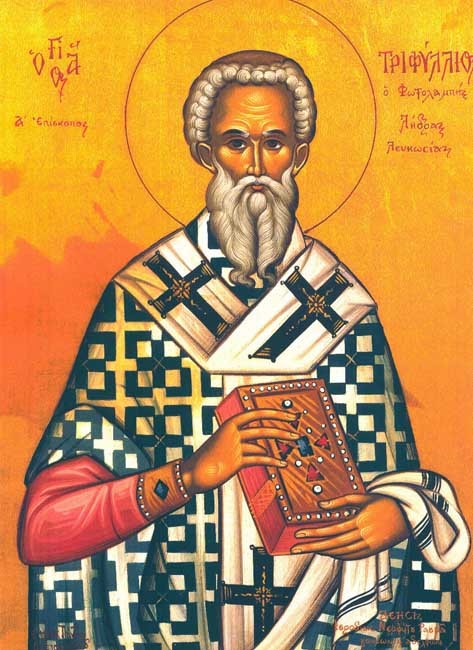
Saint Tryphillius, Bishop of Leukosia, was born in Constantinople, and he received his education at Berit (Beirut, in Lebanon). He was very intelligent and eloquent. In spite of this, the saint chose as his guide a man neither bookish nor learned, but one of conspicuous holiness: Saint Spyridon of Tremithos (December 12).
The emperor Constantine II (337-340) fell grievously ill, and receiving no help from the doctors, he turned to God. In a dream he saw an angel, directing him to a group of hierarchs. Pointing out two of them, the angel said that only through them could he receive healing.
Constantine issued an imperial edict, commanding the bishops to assemble. Saint Spyridon also received this order, and went to the emperor with his disciple Saint Tryphillius. The sick one immediately recognized them as the healers indicated by the angel. He bowed to them and asked them to pray for his health. Saint Spyridon with a prayer touched the head of the emperor, and he became well.
Saint Tryphillius was charmed by the beautiful palace, the majestic figure of the emperor, and the pomp of palace life. Saint Spyridon said, “Why are you astonished? Does all this make the emperor any more righteous? All of them, emperors and dignitaries alike, will die and stand together with the very poorest before the judgment seat of God. One should seek eternal blessings and heavenly glory.”...keep reading OCA
Roman, 9:6-10 NKJV
9 knowing that Christ, having been raised from the dead, dies no more. Death no longer has dominion over Him. 10 For the death that He died, He died to sin once for all; but the life that He lives, He lives to God.
Matthew 10: 32-36:11:1 NKJV
Confess Christ Before Men
32 “Therefore whoever confesses Me before men, him I will also confess before My Father who is in heaven. 33 But whoever denies Me before men, him I will also deny before My Father who is in heaven.
#orthodoxy#orthodoxchristianity#firstchristian#ancientfaith#bible#gospel#spirituality#mysticalchristianity
2 notes
·
View notes